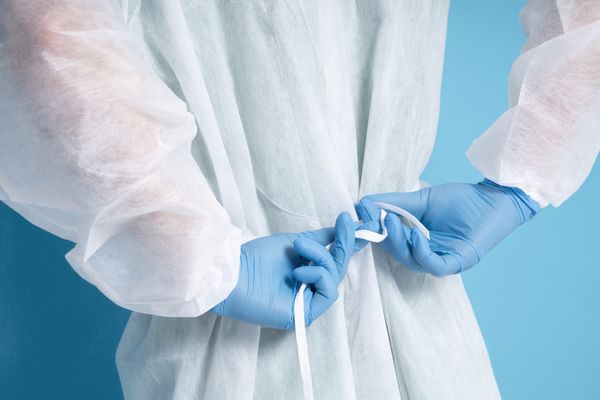
Ministers in Sierra Leone have taken a major step towards decriminalising abortion and overturning the country’s colonial-era law, in a move hailed by campaigners and women’s rights activists.
President Julius Maada Bio said his cabinet had unanimously backed a bill on risk-free motherhood, which would expand access to abortion in a country where terminations are only permitted when a mother’s life is at risk.
After years of work by government officials and a broad coalition of women’s rights groups, the provisions of a safe motherhood and reproductive health bill have been approved by cabinet ministers. Campaigners hope the bill, which is now being drafted, will be submitted to parliament by September and passed this year.
“At a time when sexual and reproductive health rights for women are either being overturned or threatened, we are proud that Sierra Leone can once again lead with progressive reforms,” said President Bio, referring to the US supreme court’s decision to overturn the constitutional right to abortion, which has drawn criticism around the world.
“My government has unanimously approved a safe motherhood bill that will include a range of critical provisions to ensure the health and dignity of all girls and women of reproductive age in this country,” Bio said at the 10th Africa Conference on Sexual Health and Rights in the country’s capital, Freetown, on Friday.
Women’s rights groups have fought for years for reform of the colonial-era abortion law in Sierra Leone, where women face profound challenges in receiving access to maternal, abortion and contraceptive services.
The current law was adopted in 1861, a century before the west African country won independence from Britain. Previous attempts at reform have failed, including in 2015, when MPs passed an abortion law that would have allowed terminations up to 12 weeks of pregnancy. The bill was blocked by the then president, Ernest Bai Koroma, amid pressure from religious and anti-abortion groups.
However, there is widespread optimism that the latest bill will pass. Beyond decriminalising abortion, the provisions of the bill agreed by the cabinet cover maternal health, expanding access to contraceptives, post-abortion care and other reproductive health services.
While the exact conditions under which an abortion will be permitted are likely to emerge only when the draft bill is submitted to parliament, campaigners said World Health Organization guidelines on abortion have guided the process. The WHO says safe abortions are a crucial part of healthcare.
Despite more girls and young women using modern contraceptives, Sierra Leone has one of the highest rates of teenage pregnancy in the world, with almost 30% of girls between the ages of 15 and 19 giving birth.
Campaigners say unsafe abortions account for up to 10% of maternal deaths in the country, which has the third-highest rate of maternal fatalities in the world, at 1,120 deaths per 100,000 births in 2017.
Rosa Bransky and Chernor Bah, co-chief executives of Purposeful, a girls’ rights group, hailed the government decision as “a monumental step forward”, yet cautioned that more needed to be done.
“We know that decriminalisation of abortion will not make it accessible to everyone who needs one overnight, and the stigma within our communities remains. The government now must ensure that the law is fully implemented, including with new guidelines on abortion provision, training for healthcare providers, procurement of abortion medication and funding,” they said.
Josephine Kamara, a feminist activist from Sierra Leone, said: “This is a landmark moment for girls and women in this country, and it shows we are now building a world where we can live in the most basic of dignities: to make choices over our own bodies.
“As a teenager, I nearly bled to death after a backstreet abortion. Let this generation be the last to experience the horrors of what happens when women’s most basic reproductive health needs are pushed underground.”







